The crux of the success of the Community led Total sanitation (CLTS) methodology lies in igniting collective action in the community to address their own sanitation issues. Women have been at the forefront of this action in many communities, emerging as Natural Leaders and leading the change from the front. This is one such case story of a Natural Leader in an open defecation free (ODF) slum community in Kalyani Municipality that became the first ODF urban local body in India in 2009.
Geeta Biswas, 50, is a Natural Leader in Vidyasagar Colony in Kalyani Municipality, Nadia district, West Bengal, India. Vidyasagar Colony was the first slum community, among the 52, to achieve open defecation free (ODF) status in Kalyani Municipality.
‘The CLTS triggering at Vidyasagar Colony inspired locals to take control of their present situation, which was taken up fiercely by women,’ said Geeta, whose interest in social issues was nurtured during the time that she started a self-help group called “Swarnajayanti’ involving all the women in the community. “As a group we undertook a number of community development services and income generation activities which helped in making the women independent and self-reliant.” The women in Vidyasagar Colony were thus already a force to reckon with during the time that the Municipality health department approached them to implement community led sanitation initiatives.
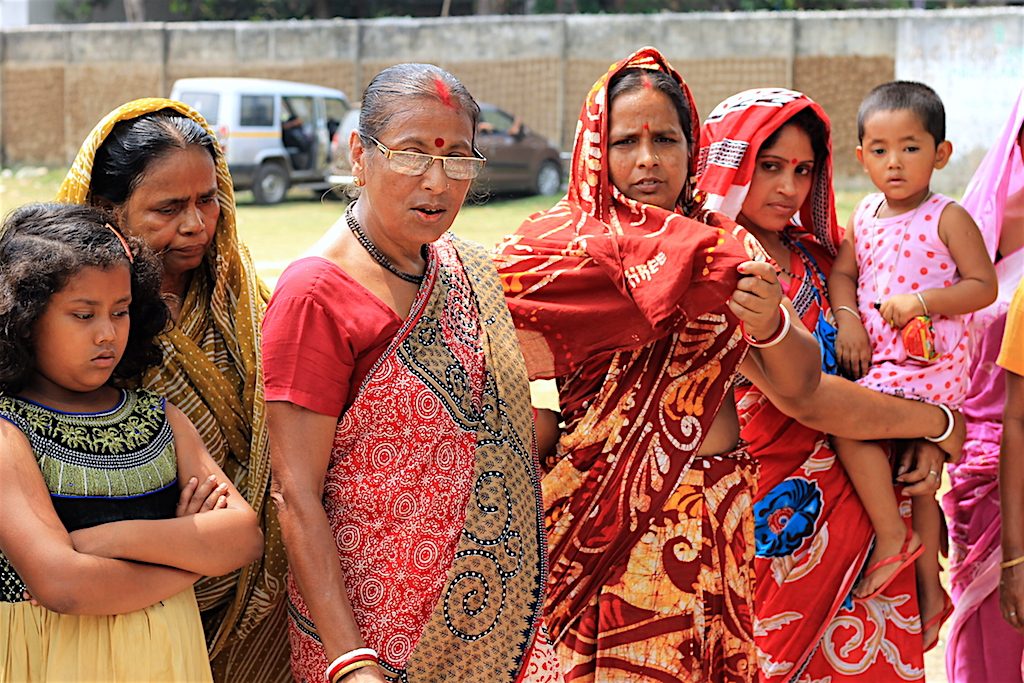
Geeta Biswas pointing out to an open defecation map in a triggering exercise in Vidyasagar Colony. Photo: Amit Sengupta/CLTS Foundation
As Geeta explains, women participated very actively during the triggering exercise and hence were also engaged in the post-triggering phase. “As part of the self-help group, we used to meet once or twice a week to discuss various issues. We used this platform to discuss how we could improve sanitation in our community. It was very natural.”
Geeta reveals that the CLTS triggering was an eye opener for people in the community. “We also realised that it was not difficult to make changes. The cost of building a toilet also was very low. We asked ourselves what had stopped us from having our own toilets earlier?” She said that as a leader of her group, she invested her time in mobilizing women from her group and other women in the community to change their sanitation behaviour and practices. “We would go door-to door trying to get people to act fast after the triggering. But it was not easy.”
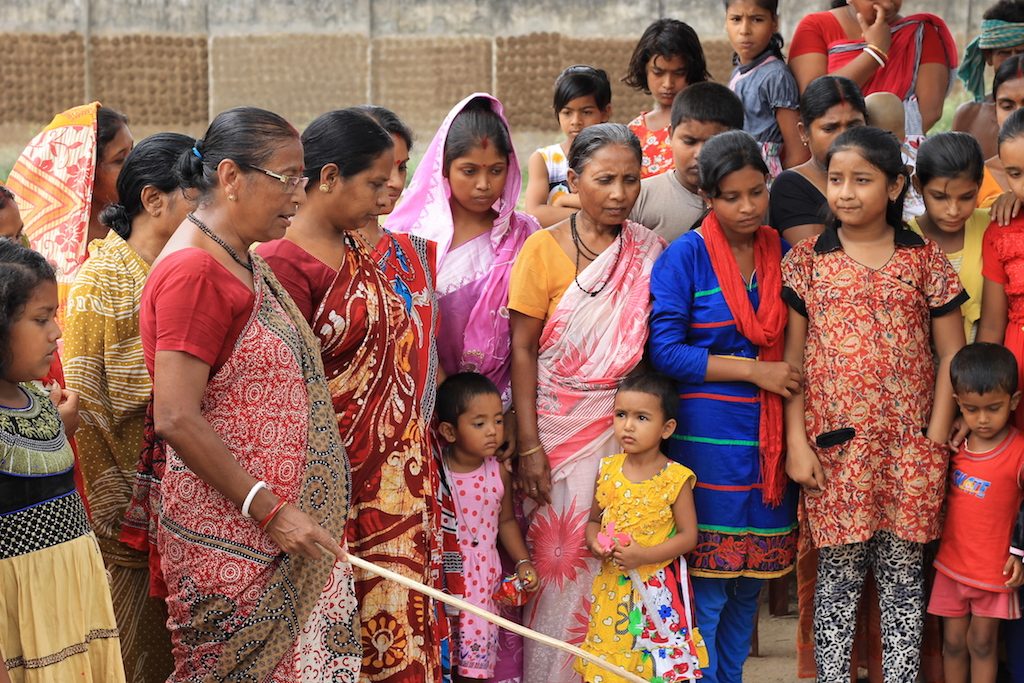
The women in Vidyasagar Colony were thus already a force to reckon with during the time that the Municipality health department approached them to implement community led sanitation initiatives. Photo: Amit Sengupta/CLTS Foundation
Geeta noted that the challenge was not that people did not understand what they had to do but in taking the decision to spend money. “In some households, the men and women jointly made the spending decisions. In some others, women had a tough time convincing the men in their households. It boiled down to them not wanting to listen to what the women were telling them,” she recounts. Geeta recalls that she had to face humiliation many a times when household members, mainly men, would not listen to what she had to say. “But we persisted. And the power of the collective won them over eventually. After everyone built their toilets, they were thankful to us.” According to Geeta, empowering each woman to come together and take charge was important. Collective action by the women and other community members was a key factor in making the community ODF.
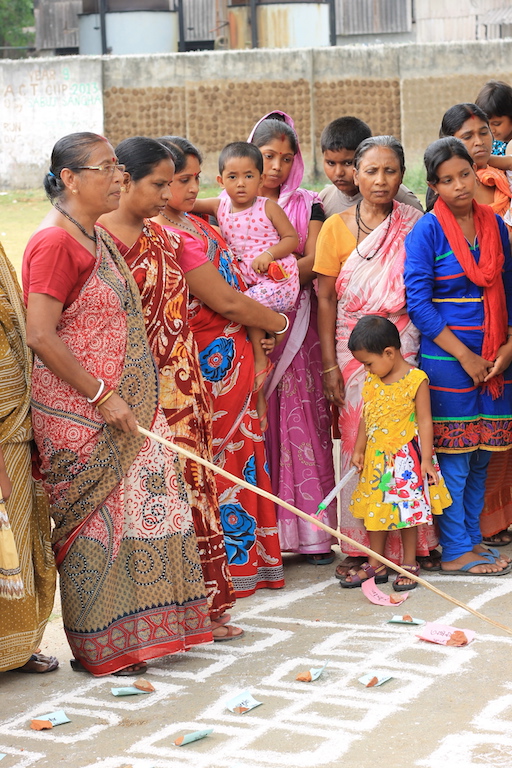
Geeta Biswas pointing out to an open defecation map in a triggering exercise in Vidyasagar Colony. Photo: Amit Sengupta/CLTS Foundation
Every household started building their own toilets with technical advice from the Municipality Town planning officer as and when required. After the community was declared ODF, Geeta was offered a cash reward for all her efforts, which she refused to take stating that her real reward was in watching the transformation of her community from an extremely dirty one to the clean place that she now resides in. ‘I feel extremely proud of the proactive role that women have played in making this Colony ODF. This is the biggest reward and my greatest achievement so far’.
Note to Editors: This case story is part of a study titled “The impact of CLTS on women’s health in urban slums – The case of Kalyani Municipality”, a joint collaborative effort between the Institute of Development Studies, University of Sussex and the CLTS Foundation as part of a project within an Accountable Grant funded by UK Aid from the UK’s Department for International Development.
By Preetha Prabhakaran – Programme Manager, CLTS Foundation
Cover Photo: Geeta Biswas during one triggering exercise in Vidyasagar Colony, Kalyani, West Bengal, India. Photo: Amit Sengupta/CLTS Foundation

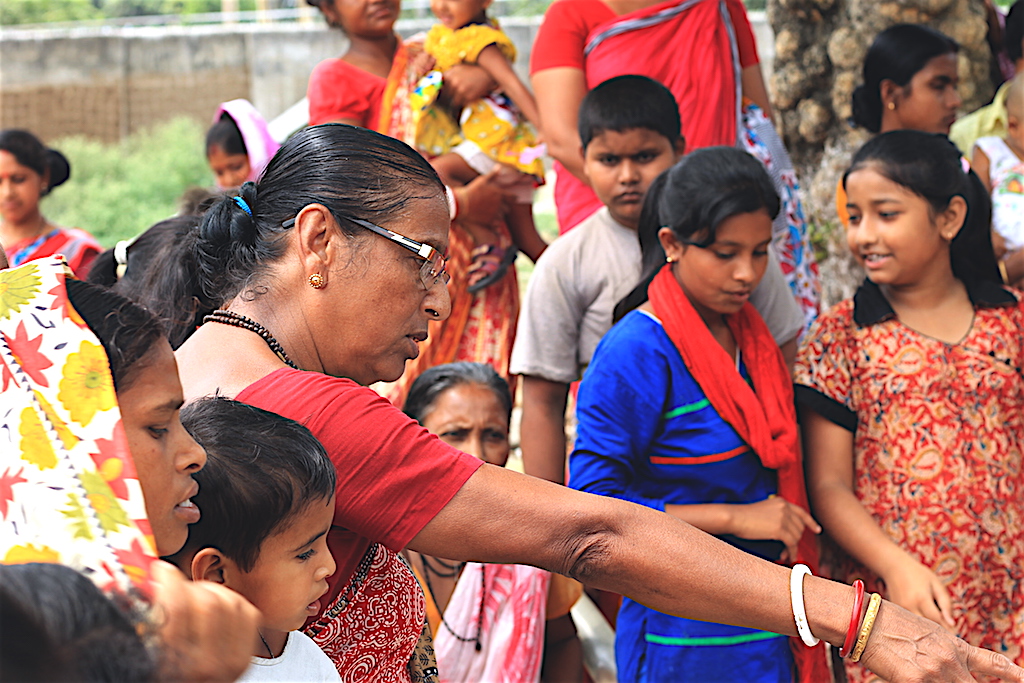
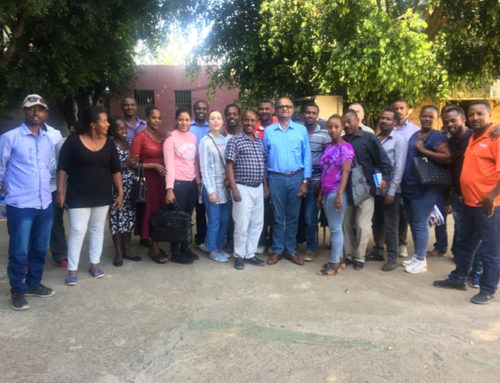
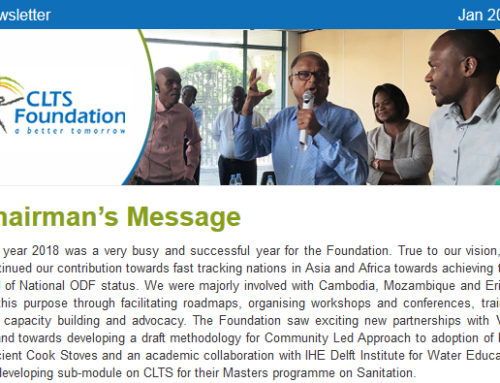
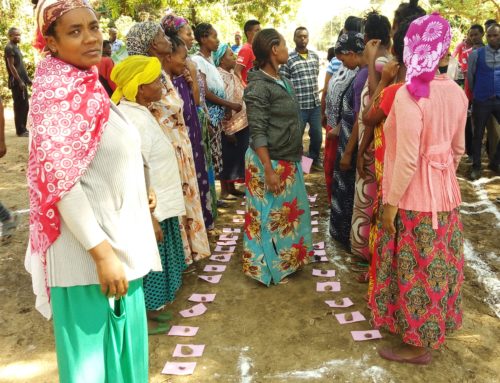
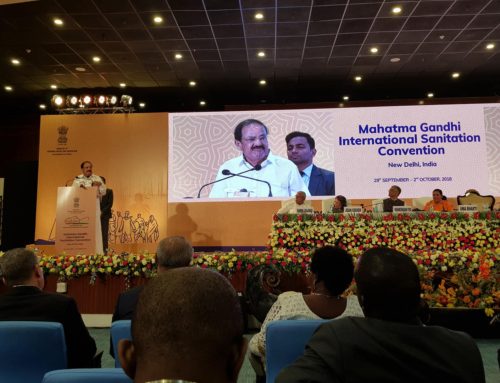
Leave A Comment